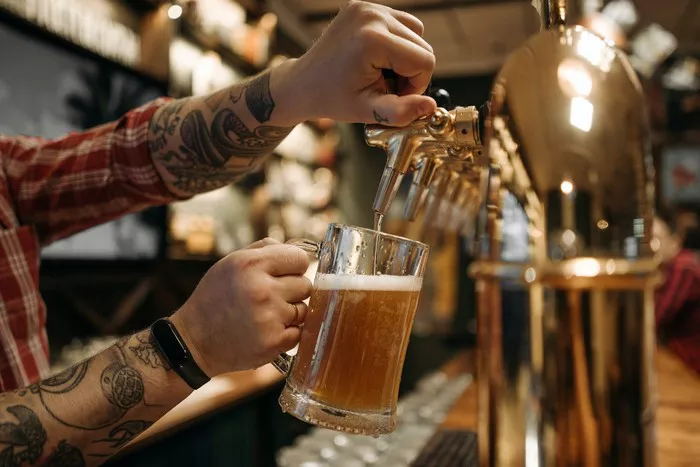The meteoric rise of hard seltzers has transformed the beverage landscape, captivating a diverse audience seeking refreshing alternatives. However, a persistent question looms over this effervescent trend: is hard seltzer considered beer? This inquiry delves beyond the surface, navigating the intricate realms of brewing, alcohol classification, and consumer perception to unravel the complexities that define these libations.
Defining Beer and Hard Seltzer
To ascertain whether hard seltzer falls under the beer category, it’s essential to dissect their compositions. Traditionally, beer is crafted from malted barley, hops, yeast, and water. This concoction undergoes fermentation, yielding various styles such as ales, lagers, stouts, and porters. On the contrary, hard seltzer comprises carbonated water, alcohol, flavorings, and occasionally, sugars. The alcohol in seltzers is often derived from fermented sugars, typically derived from cane sugar or malted barley, although some brands use other sources.
Alcohol Content and Fermentation Process
One of the pivotal distinctions between beer and hard seltzer lies in their alcohol content and the fermentation process. Beers derive their alcohol content predominantly from fermented grains, predominantly malted barley, resulting in a wide spectrum of flavors and textures. Conversely, hard seltzers primarily use a neutral spirit, like vodka or fermented cane sugar, contributing minimal flavor, allowing the fruity essence to prevail. This fundamental difference in fermentation methods and alcohol sources accentuates the differentiation between these libations.
Regulatory Classifications
The classification of hard seltzer as beer varies across regulatory frameworks globally. In the United States, the Alcohol and Tobacco Tax and Trade Bureau (TTB) categorizes hard seltzers that use malted barley as a base for fermentation under the beer classification. Consequently, these seltzers fall within the purview of beer regulations concerning labeling, taxation, and distribution. Conversely, hard seltzers produced from neutral spirits are not considered beer but fall into the broader category of flavored alcoholic beverages.
Evolving Consumer Perceptions
Beyond legal classifications, consumer perception plays a pivotal role in defining whether hard seltzer is considered beer. While purists may adhere strictly to the traditional definition of beer, a considerable segment of consumers perceives hard seltzers as a distinct category owing to their lighter body, lower calorie count, and diverse flavor profiles. This evolving perception underscores the dynamism of consumer preferences and their impact on beverage categorization.
Market Dynamics and Industry Impact
The explosive growth of the hard seltzer market has reverberated across the beverage industry, prompting established breweries and beverage conglomerates to pivot towards this lucrative segment. With a surge in demand for low-calorie, gluten-free, and flavorful alternatives, breweries and distilleries alike have ventured into producing hard seltzers. This shift signifies a strategic response to evolving consumer tastes, blurring the lines between traditional beer and newer entrants like hard seltzers.
Brewing Techniques and Innovation
Innovation within the brewing landscape has been instrumental in blurring the boundaries between beer and hard seltzer. Brewers have started experimenting with unconventional ingredients, fermentation techniques, and flavor infusions to create hybrid beverages that encompass characteristics of both beer and hard seltzer. This convergence of brewing techniques aims to cater to a diverse audience seeking novel experiences while challenging the conventional definitions of these beverages.
Health Considerations and Dietary Preferences
The emergence of hard seltzers aligns with the growing emphasis on health-conscious choices and dietary preferences. With an increasing number of consumers seeking lower-calorie options without compromising on flavor, hard seltzers have positioned themselves as a viable alternative. Their gluten-free nature and relatively lower carbohydrate content resonate with individuals adhering to specific dietary regimens, further augmenting their appeal and distancing them from the traditional perception of beer.
Cultural and Societal Influences
Sociocultural factors also contribute significantly to the delineation between beer and hard seltzer. While beer enjoys a rich history deeply embedded in various cultures worldwide, hard seltzer’s ascent reflects contemporary trends and lifestyle choices. The sociocultural connotations associated with beer, often linked to social gatherings, sporting events, and celebrations, contrast with the more versatile and inclusive image projected by hard seltzers, appealing to a broader demographic beyond traditional beer-drinking cohorts.
Conclusion
In conclusion, the query “is hard seltzer considered beer” traverses multifaceted dimensions encompassing ingredients, fermentation processes, regulatory frameworks, consumer perceptions, and societal influences. While hard seltzer shares certain characteristics with beer, including its alcoholic nature, it stands as a distinct entity driven by its unique attributes, flavors, and consumer appeal. The evolving beverage landscape continues to challenge rigid categorizations, emphasizing the fluidity and adaptability of consumer preferences, ultimately shaping the narrative of what defines beer and its contemporary counterparts like hard seltzers.


